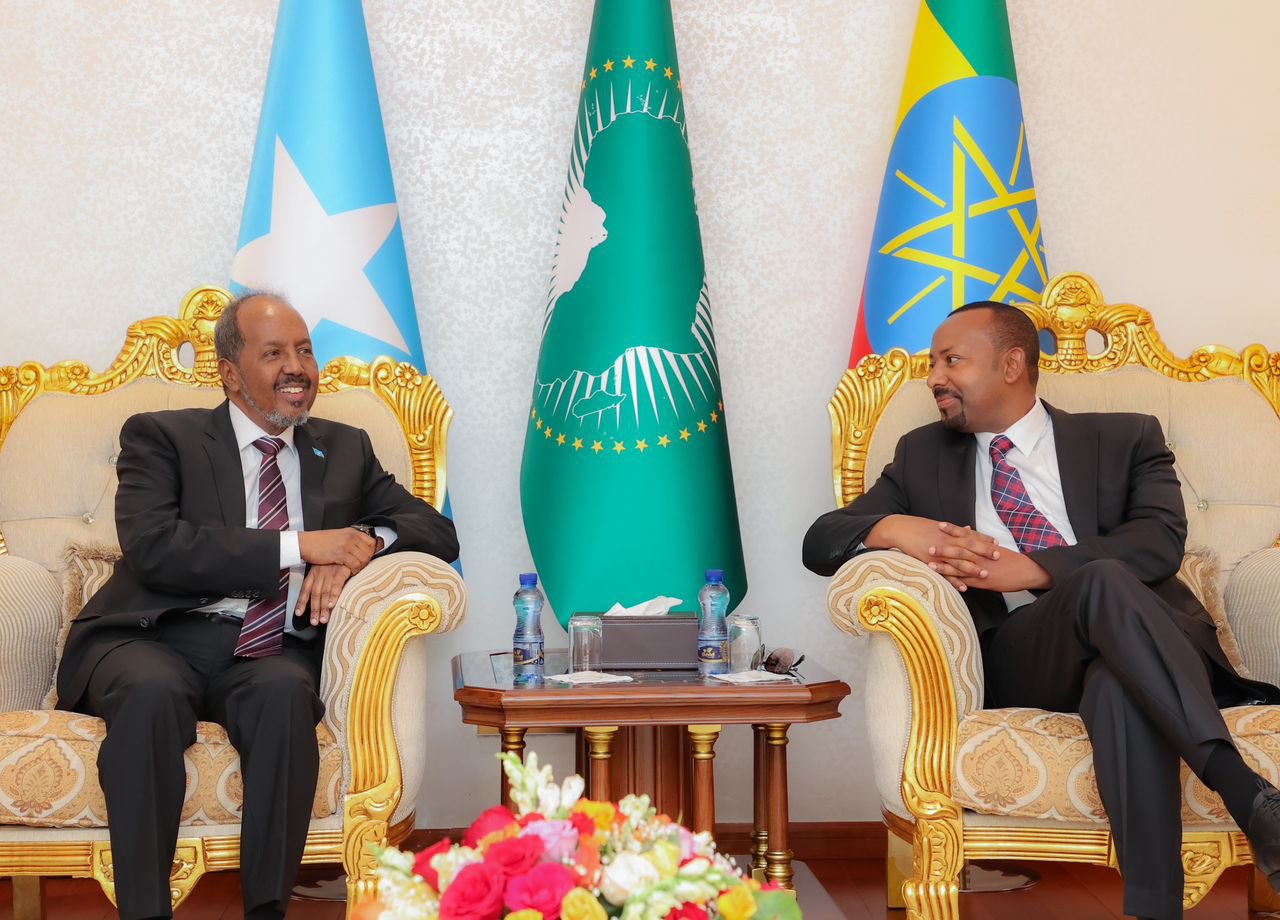Somalia, Ethiopia renew cooperation, sign deal to strengthen ties

THE EAST AFRICAN|MOGADISHU: Somalia and Ethiopia say they will work together to protect each other’s territories, including requesting the UN Security Council to lift an age-old arms embargo on Mogadishu.
At the end of his two-day state visit to Addis Ababa, Somali President Hassan Sheikh Mohamud signed a ten-point declaration with his host, Ethiopian PM Abiy Ahmed, “to nurture and strengthen the longstanding bilateral ties and relationships between the two countries and peoples based on respect for the territorial integrity and sovereignty of both countries,” the communiqué indicated.
And the priority will be to ask for Somalia to regain its power to purchase weapons and stabilise its security forces.
“The leaders call upon the UNSC (United Nations Security Council) to consider the request of the Federal Governments of Somalia for the lifting of the arms embargo imposed on the country for more than 30 years, to ensure that Somalia is sufficiently equipped to effectively address the security threat posed by the Al Shabaab terrorist group,” the communiqué added.
Somalia has been banned from direct purchasing of weapons, an old embargo imposed in the early 1990s to stop warlords from overrunning the country during the civil war. But the ban has been extended continually in the past, varied to target al-Shabaab militants. Today, Somalia can only purchase certain weapons, and with permission from the sanctions committee of the UNSC.
Donors and other countries helping Somalia rebuild the army can donate weapons too, but as long as the Council is notified.
Critics say that this negates the right of Somalia to upgrade the security forces resulting in the military having inferior weapons compared to Shabaab militants who buy more superior weapons in the black market.
As further pointed out, “(The Somali and Ethiopian leaders) emphasised the need to work together, minimise the effects of undue external interferences that could potentially undermine their joint effort for peace and stability in the region and effectively combat terrorism.”
This was the first meeting on Ethiopian soil by the two leaders since Mohamud was elected in May. The meeting may helped remove a cloud of rumours that had swirled around their relationship, including claims that Ethiopia was not amused with Somalia’s closeness to Egypt, which has a dispute with Ethiopia over the Nile waters.
Somalia had also made trade deals with Kenya to resume importing its khat, raising competition for Ethiopia’s that enjoyed almost exclusive access to Mogadishu under the former administration of Mohamed Farmaajo.
Alongside Uganda, Burundi, Kenya and Djibouti, Ethiopia is a troop contributing country to the African Union Transition Mission in Somalia (ATMIS). Hence, the two sides paid tribute to the gallant Ethiopian Defense Forces who paid the ultimate sacrifice for peace, stability and nation building in Somalia.
Mohamud and Abiy agreed to hold regular bilateral consultations and to collaborate in multilateral and regional forums to promote their common national interests on the basis of mutual respect for the sovereignty and territorial integrity of the two countries.
Local commentators have been speculating on possible economic collaborations. Thus, it that the 9th and 10th points of the communiqué fit the purpose.
“The two leaders emphasised the importance of expanding cooperation in the areas of trade, economy and infrastructure as well as communications in addition to the well-established political and security collaborations.”